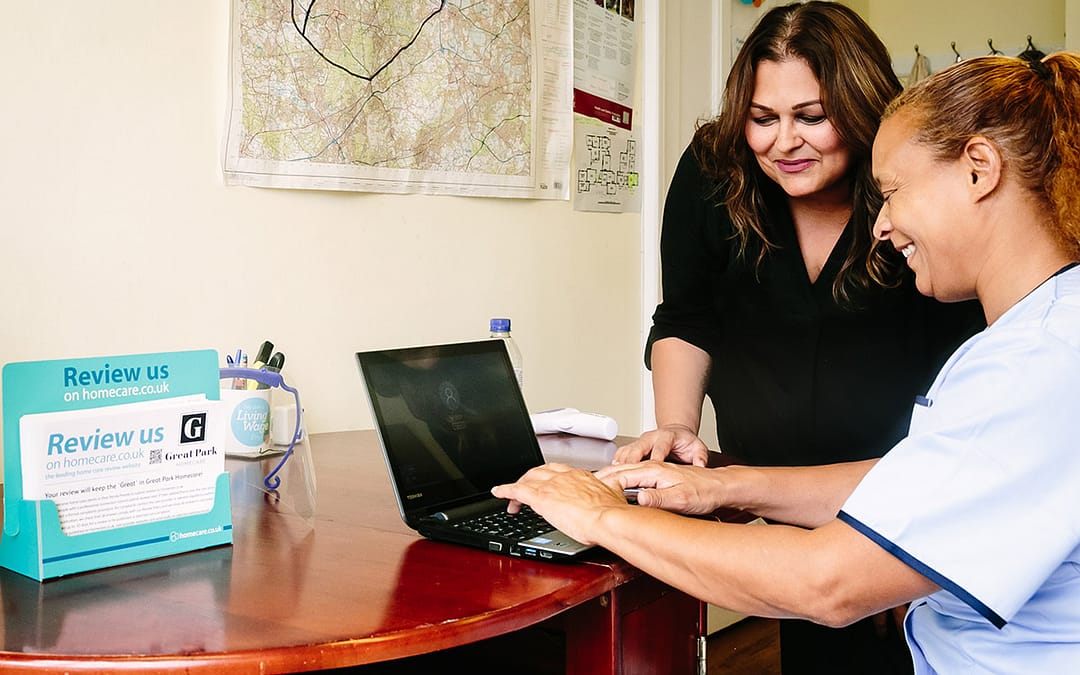Charles Darwin’s theory of evolution still holds today – our long-term survival depends on our ability to adapt. We can see this theory play out in the medical field. Researchers are creating life-changing assistive technology.
Those who embrace it can hope to survive and flourish in the long term.
Assistive technology in care is critical to improving and saving people’s lives. As it develops, the quality of our lives will get better and older people will continue to thrive as they age.
What is Assistive Technology?
Assistive technology in care is devices or systems that help you with everyday living, especially if you have cognitive and mobility difficulties. An essential part of adult social care, assistive technology is often used by older people and people with dementia to achieve long term independence and a better quality of life.
There are many kinds of assistive technology, including telehealth, telemedicine and telecare.
Telehealth is the general term for medical care delivered remotely using tech. One example of telehealth is a sensor which alerts adult social care workers or support workers when people with dementia leave the house.
Telemedicine is similar to telehealth, but it refers to care by a medical doctor delivered at a distance rather than by all health and social care providers. A GP appointment conducted online is one example of this.
Telecare services are security systems that support older people in their own homes – they call for help if you have a problem at home. Telecare services are essential for those at risk of falling, such as people with dementia or mobility issues.
Assistive technology has a wide range of uses. It can help with mobility, hearing, cognition, reading, etc. An example of a more extensive assistive technology is a ‘grab bar’ for older people at risk of falling. By contrast, an example of a small assistive technology is a device that gives an audible reminder to people with dementia to take their medicine or eat a meal.
Which Assistive Technology is Right for You?
When thinking about which assistive technology will improve your quality of life, or the quality of life of a loved one, consider your or their short and long term physical and cognitive needs.
Some older people are at risk of falling and would benefit from a non-slip bathmat, walk-in shower, or stair rails. If you have mobility needs then wheelchairs, walkers, canes, and scooters are all kinds of assistive technology that help you stay mobile and most importantly, independent.
Alternatively, you may benefit from cognitive support. For example, people with dementia who cannot read often find text-to-speech software, and helpful technology.
Lastly, you may find the tasks required for everyday living easy to do but would benefit from technology that monitors your health, such as a weight monitoring service for those at risk of undernutrition.
Assistive Technology in Smartphones
A more recent development in adult social care is using assistive technology in smartphones to support people with cognitive tasks, especially older people and people with dementia. We can expect assistive technology in smartphones to become an increasingly important part of adult social care in the long term.
For example, some devices have built-in text to speech options to help you with the reading essential to everyday living, such as reading the opening times of shops. Another feature of smartphones that can improve quality of life is the speech-to-text feature, which helps older people message loved ones without needing to type.
Finally, for those living with memory issues, such as people with dementia, smartphones have inbuilt calendars and notifications to help remind you of important dates. Many people who are neurotypical and well use these functions to help keep them on track during a busy day.
Find the Best Assistive Technology Advice
You may think that assistive technology will help you with everyday living or improve your quality of life but wonder where to go for guidance. Or perhaps your occupational therapist has recommended assistive technology to you, and you need some help finding a suitable device.
We highly recommend you speak to Great Park Homecare’s Care Management Team on +44 (0)1753 369088 to discuss assistive technology options, including telecare services. We can give lots of information about who to speak to locally and nationally and what to do before purchasing assistive technology, we can also talk to you about other adult’s social care support, such as domiciliary and personal care.
The NHS also has excellent guidance on assistive technology and other adult social care options.
Overall, embracing assistive technology will help you live a long and fulfilling life. There is an amazing amount of new and cost-effective technological solutions being created to meet each person’s individual needs. Remember, while you can’t change the direction of the wind, you can adjust the sails.
Do we serve your area?
Areas we serve are Windsor, Old Windsor, Ascot and surrounding areas including Bray, Datchet, Dorney, Englefield Green, Eton, Eton Wick, Great Park, Winkfield and Windsor.

